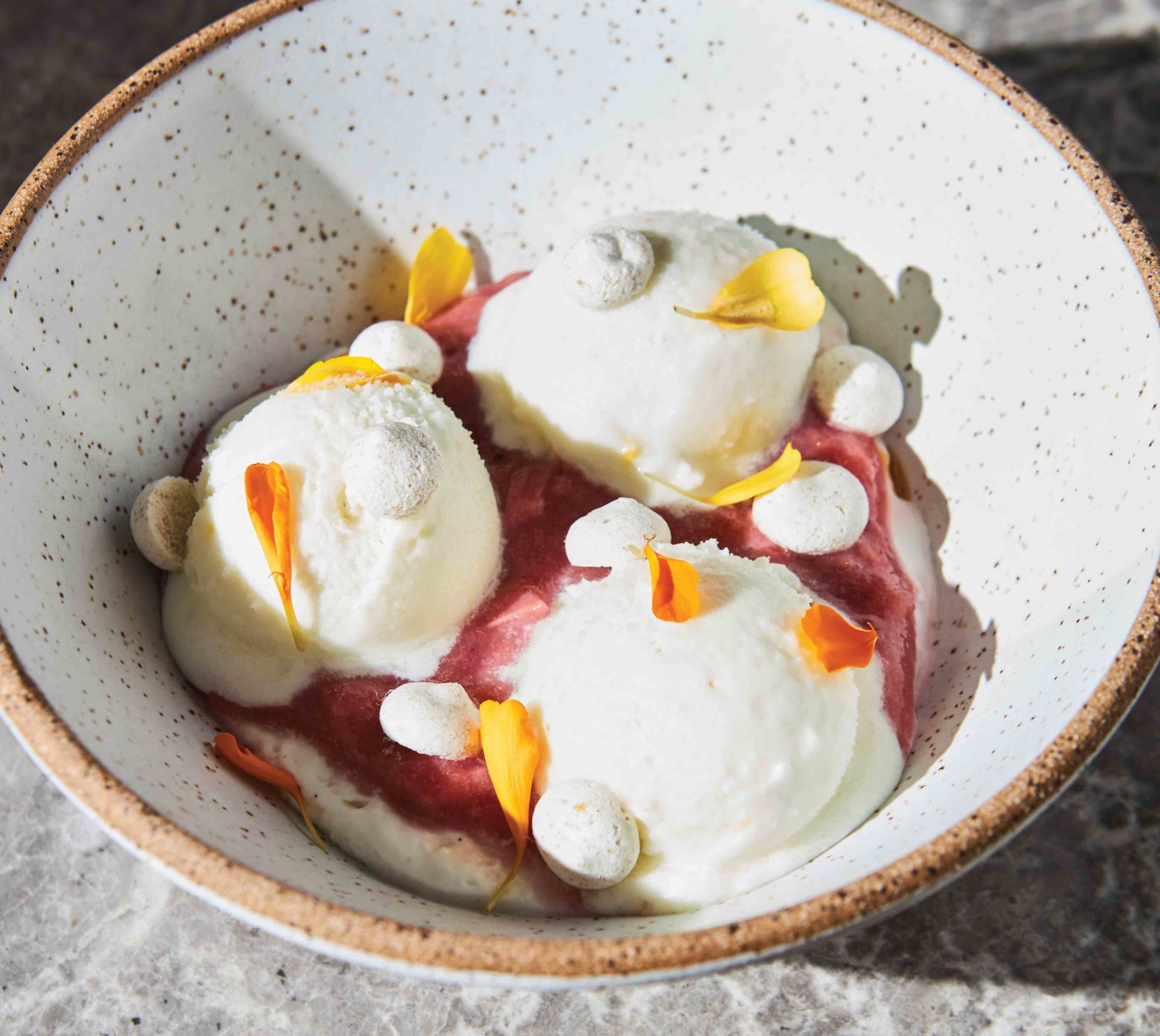Nine great restaurants from a bold new era of Kansas City food.
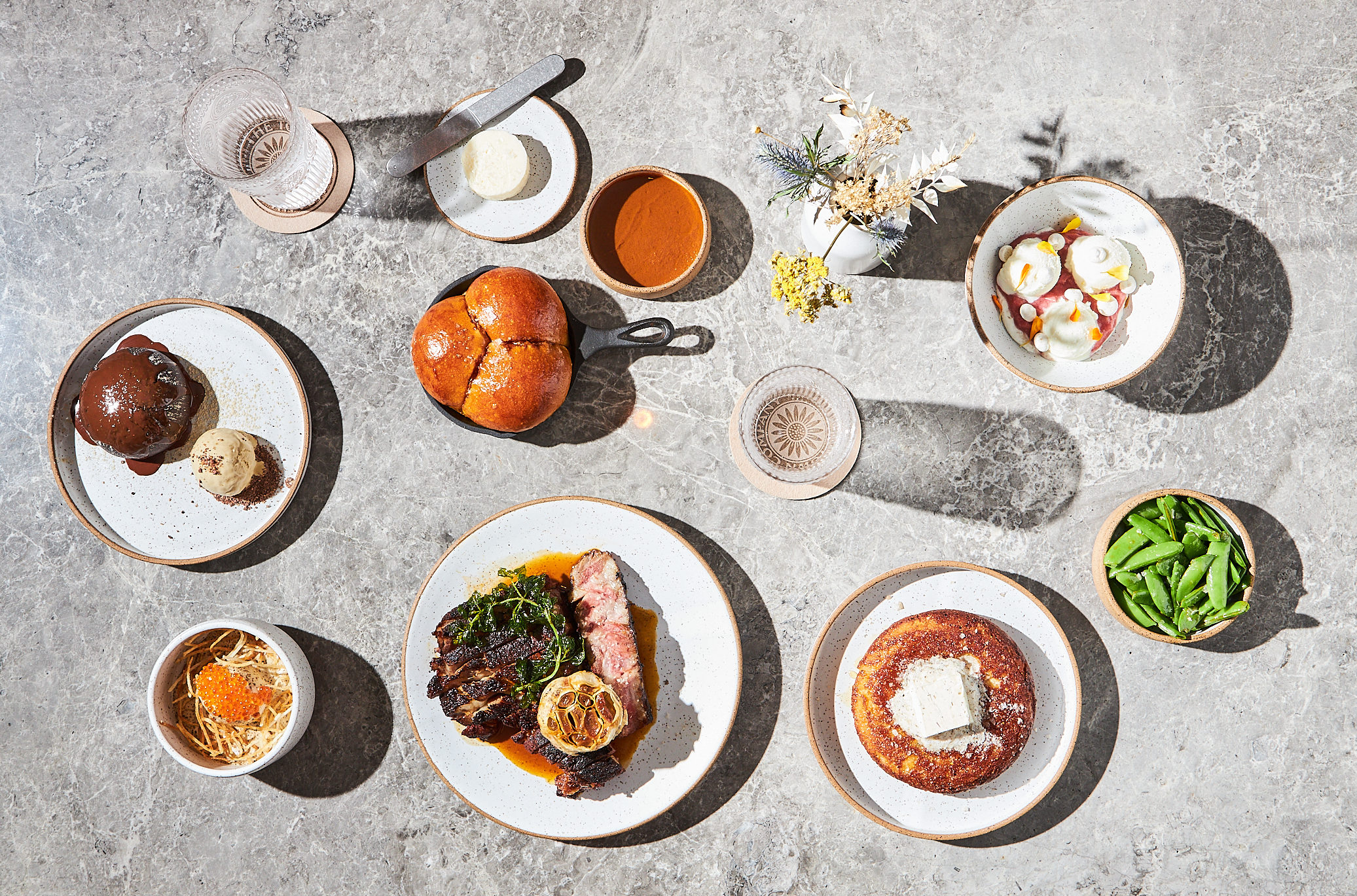
For this list of Kansas City’s best new restaurants, we looked at places that have opened since March 2020.
We paid our own way and did not announce ourselves. Advertisers were not favored.
Restaurants of every type were considered. We picked restaurants that offer an exceptional dining experience and enrich the city’s cultural landscape.
WORDS
Martin Cizmar, Natalie Torres Gallagher, Mary Henn
PHOTOGRAPHY
Caleb Condit & Rebecca Norden
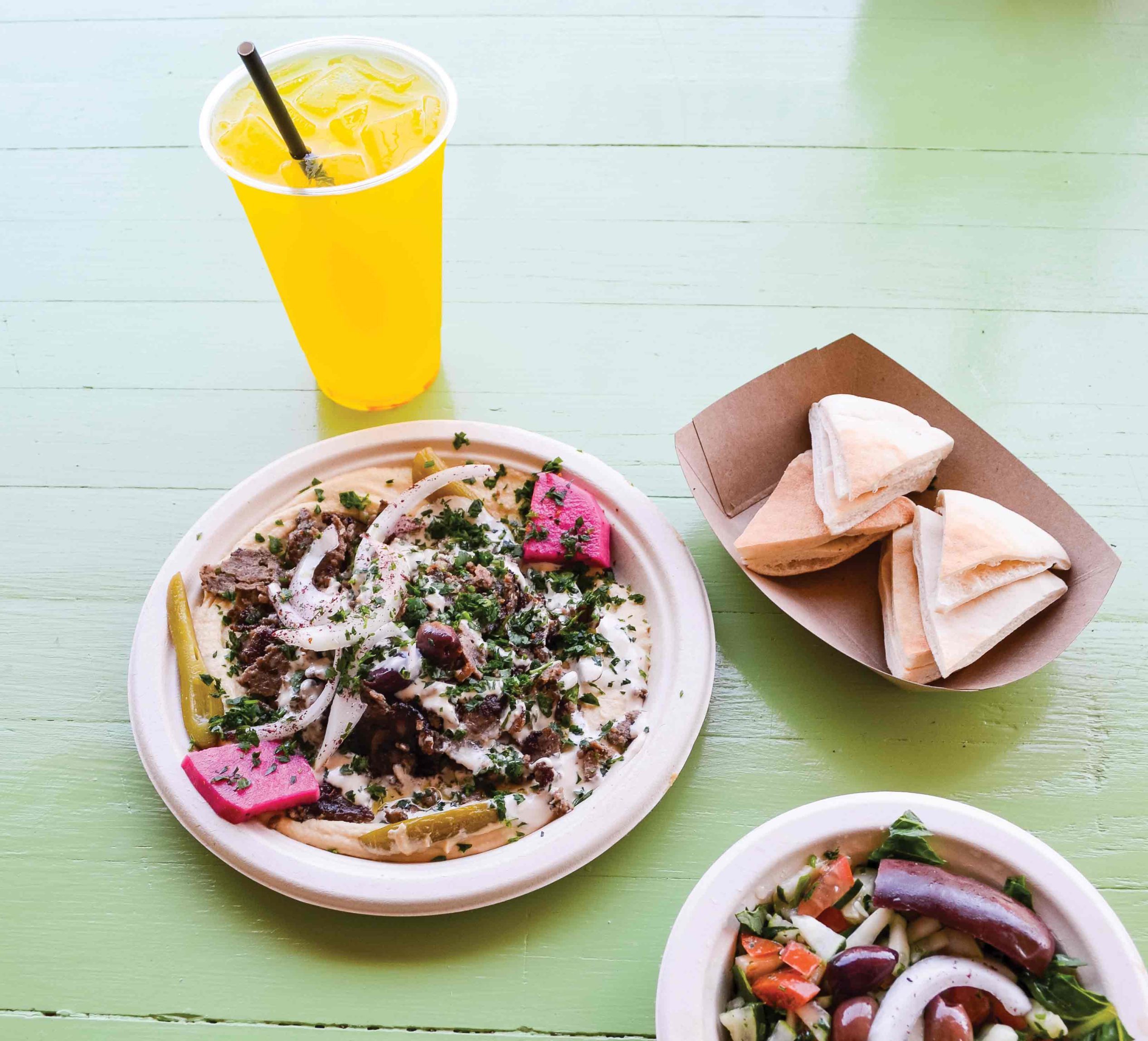
Omar Kamal has a gleeful laugh as he recalls the empty shelves lining his father’s pantry. It was his fault, he confesses—along with his brother, Kamal Yahia. As college students, they’d head home on the weekends for dinner and raid the kitchen like hungry pirates.
“We’d take all his harissa and his spices, sometimes leaving him with nothing,” Omar says. That’s where Baba’s Pantry began. The restaurant, which occupies a small space on 63rd Street in Brookside, is part-market, part-cafe and all charm.
Yahia, Omar’s father, is Palestinian (“baba” is Arabic for father). Although Omar and his siblings were born in the U.S., the Kamal family lived in Palestine for most of the nineties. There, immersed in their father’s homeland, they came to understand Palestinian food.
On the surface, the most widely known Palestinian dishes are indistinguishable from the broader Levant: hummus, falafel, tabbouleh. But there is something else, too. It’s not easy to pinpoint—Omar describes Palestinian food as “simple, with fresh ingredients and beautiful colors”—but you can find it in the falafel at Baba’s, where the filling is as vibrantly green as fresh parsley. It’s there in the shatta, a chili paste found on every Palestinian table. It’s made at Baba’s with fermented green jalapenos and walnuts.
When you are seated comfortably inside Baba’s Pantry and forming craters in that silky hummus with your pita, you’ll find portraits of the extended Kamal family and beloved Palestinian artists watching you peacefully from their places on the bright walls. And perhaps this is the most important thing Baba’s Pantry offers, this expression of identity and experience of sharing it. —Natalie Torres Gallagher
Pro tip: Don’t sleep on the lemonade of the day, fresh squeezed and always with a unique twist.
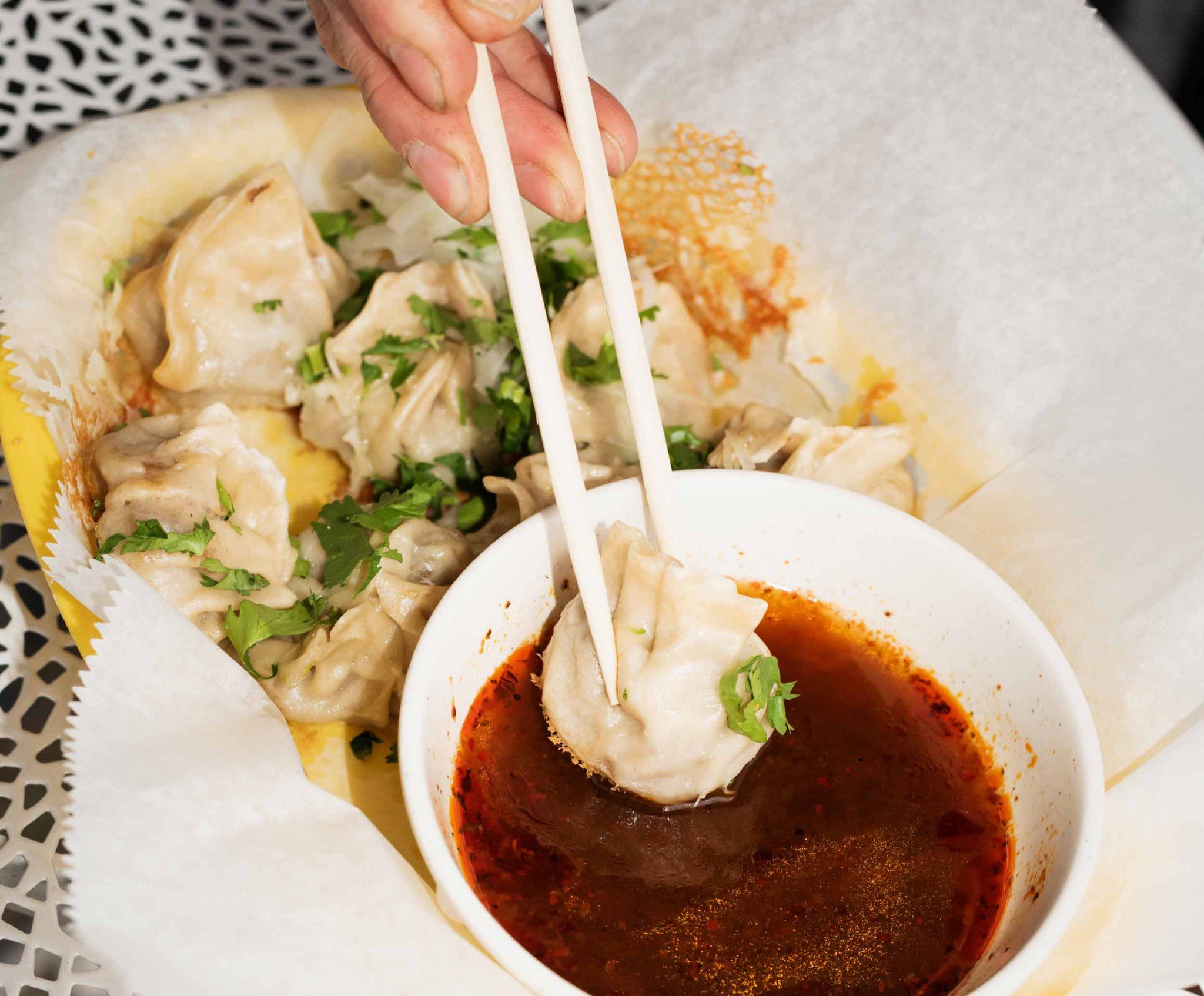
At Lucky Seb’s in Lawrence, Will Soo serves a mind-bending dumpling special every weekend. There have been stroganoff dumplings stuffed with tender beef and smothered with mushroom gravy, lamb and beef gyro dumplings with hummus and feta, and dumplings filled with whipped potatoes and eggs and topped with gravy, bacon and cheese.
Each week, the special sells out. And it’s not just the novelty appeal: Soo’s creations are genuinely superb. In my hangriest moments, I summon visions of his birria dumplings—plump darlings filled with soft, slow-roasted, stewy brisket and served with a slurpable consommé dipping sauce.
The menu at Lucky Seb’s, a slender space with not many more seats beyond what the bar can hold, is small but mighty. Beyond the weekly dumpling special, Soo offers a handful of dishes that juxtapose global flavors. See: the lox rangoons filled with house-smoked salmon and cream cheese and the grilled chicken entree served with homemade rotis, curry sauce and salsa verde. His fried chicken sandwich is particularly popular, and the twenty-four-hour marinade it receives—a mix of fish sauce, lime juice, soy sauce, achiote paste and orange juice—is a mashup of Asian and Mexican influences.
What do you call a restaurant like this? “Fusion” went out of fashion in the early aughts, and Soo doesn’t feel like that’s accurate anyway.
“I tell people it’s an American establishment because the food we’re creating is, for lack of a better term, butchered dishes, a lot of them Asian,” he says. “That’s what American food ends up being sometimes. You’re taking a dish from wherever your family is from and it evolves into something that doesn’t really resemble the dish back home, like pizza.” —Natalie Torres Gallagher
Pro tip: Lucky Seb’s is only open weekends, and it’s a small space that can get crowded—there’s plentiful outdoor seating on nice days.
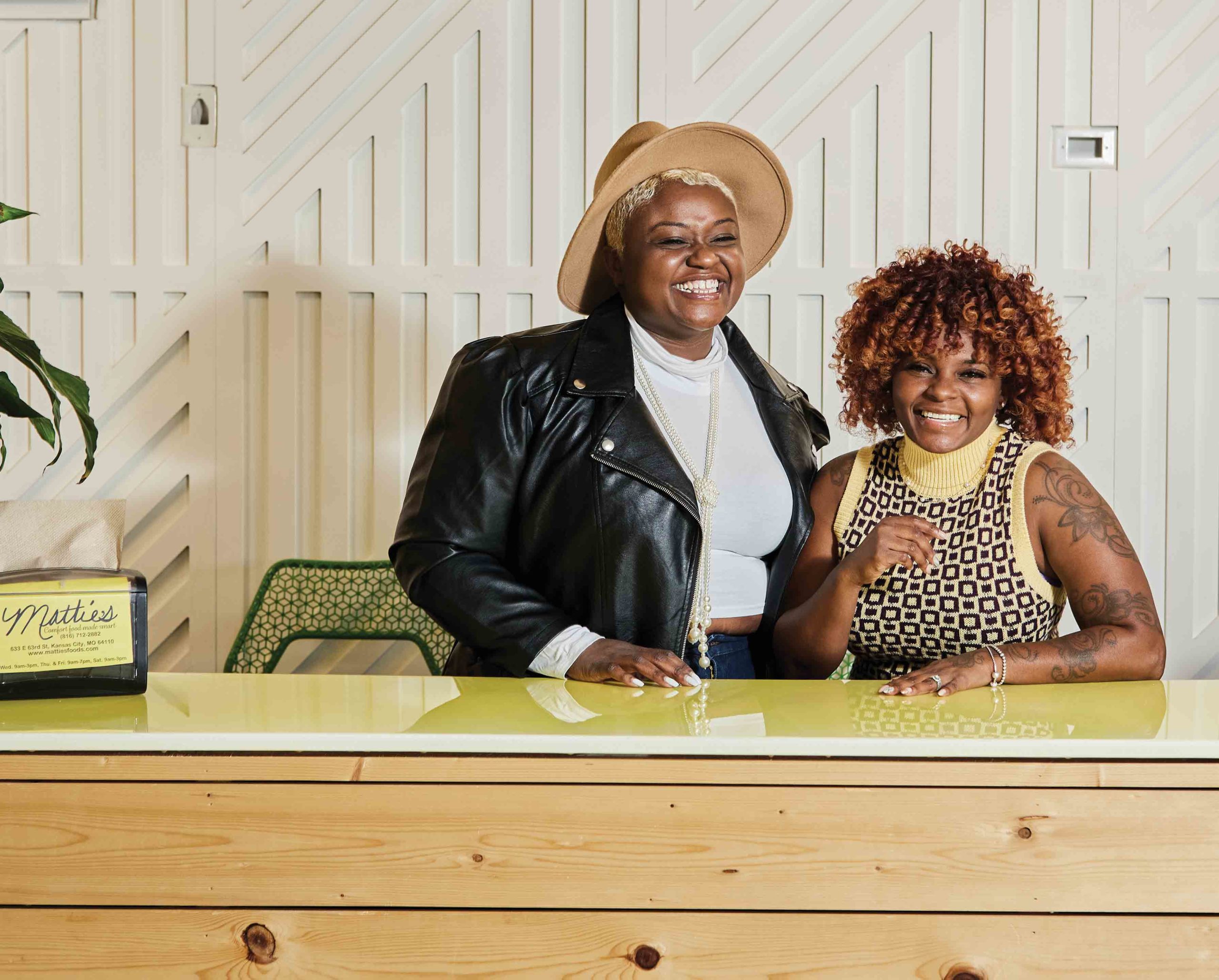
Sisters Arvelisha Woods and India Pernell insist there is no butter in their vegan Mattie bon, and I want very much to believe them. But the thing is, I’ve had that cinnamon roll. I once carried half a dozen of them—these gorgeous pastries as big as a sleeping kitten and just as soft—in an air-tight cooler on an eight-hour drive so that my vegan sister could experience flavors she hadn’t tasted in years. And as she held that coveted center bite between her fingers, she raised an eyebrow at me and demanded to know if I had tricked her into eating a Cinnabon.
“We worked hard to make it taste suspicious,” Woods says. “There are some very good vegan kinds of butter out there.”
When Woods and Pernell transitioned to a vegan diet in 2015, they went from eating whatever they wanted to feeling like they had limited choices. For them, food and family went hand-in-hand. Suddenly, they couldn’t enjoy the same meals with the people they loved.
“When we went vegan, we were separated from everything great about eating with our families,” Woods says. Going back to her previous diet wasn’t an option. “I love food, but I don’t want high cholesterol and high blood pressure. In African-American communities, you don’t see healthy food available often. We wanted to help people who look like us or eat like us but who want to eat well.”
So Woods and Pernell searched for creative ways to satisfy their cravings for comfort food. They worked on cinnamon rolls, developed a gooey mac and cheese with seitan buffalo bites and a marinated barbecue brisket sandwich made with tofu. In September 2020, they opened Mattie’s Foods—named for their grandmother—in a bright space on 63rd Street on the east side of Brookside, across from Unbakery and Juicery. Though the restaurant’s menu is entirely plant-based, the duo left “vegan” off signage.
“We don’t brand ourselves as a vegan restaurant,” Woods says. “It’s good food made smart. We wanted to be a bridge for people. Most of our customers are vegan or what we call ‘vegan allies.’ But we want to be accessible to everyone. We’re just here to serve good food.” —Natalie Torres Gallagher
Pro tip: The BKS brewing taproom is in the same building and connected by a hallway. Mattie’s will deliver your food there if you ask nicely.
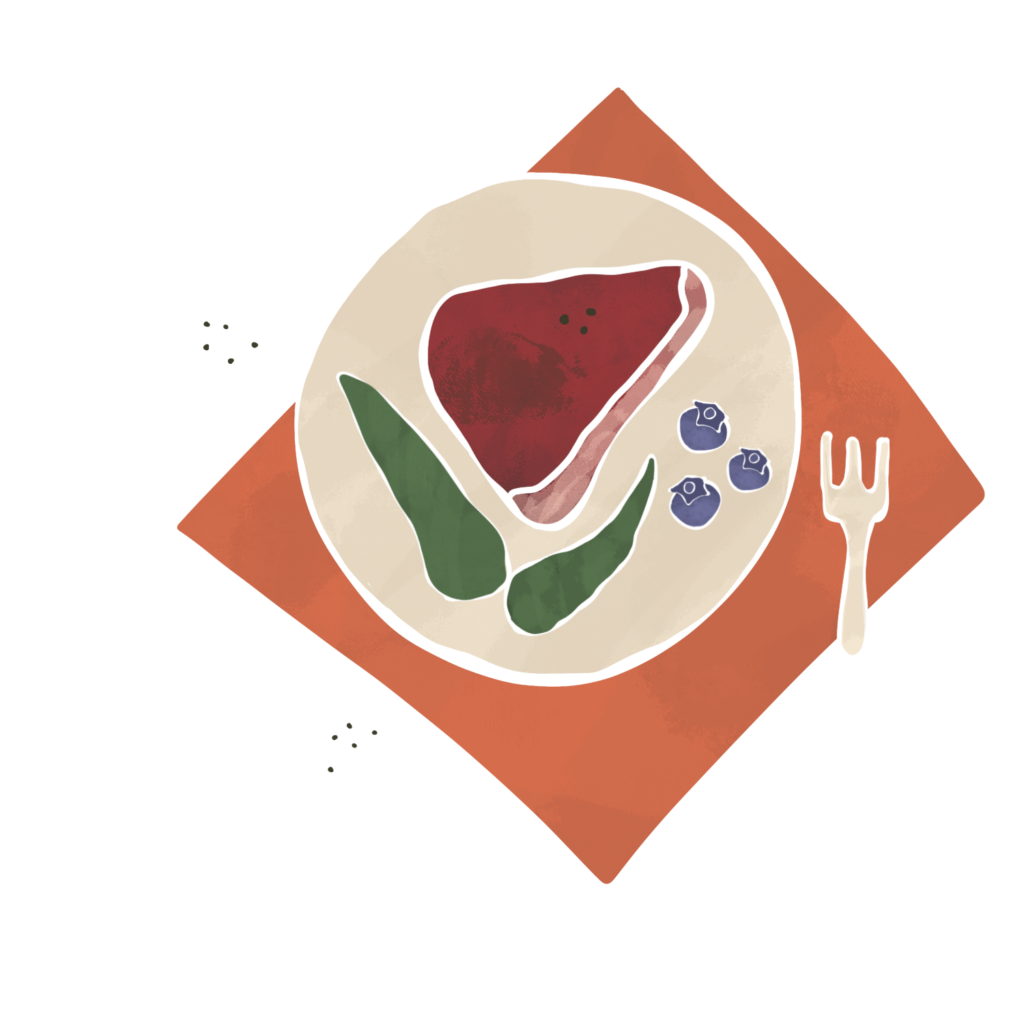
Great restaurants often come in clusters. In most cities, you’ll find the most energy for fresh new food concepts in what real estate agents tend to call “emerging areas”—or what some others call gentrified areas.
The corner of 63rd and Troost, where three of our top nine new restaurants live within a few blocks, is an outlier. There are a few modernist apartment blocks down the street, sure, but not many, and not especially close. There’s an ancient, struggling shopping mall and several large brick buildings that are mostly or entirely unused. There’s no nightlife to speak of—the only bars east of Charlie Hooper’s keep limited hours.
But along with Baba’s Pantry, Wah Gwan and Mattie’s, you’ll find the best small brewery in the city (BKS Artisan Ales), an excellent bakery (Heirloom) and several other establishments that maintain a loyal clientele.
When three of the best new restaurants in the entire metro area sit so close, it certainly seems fair to call it a Restaurant Row, even if the corner of Troost and 63rd seems like an odd spot for the title.
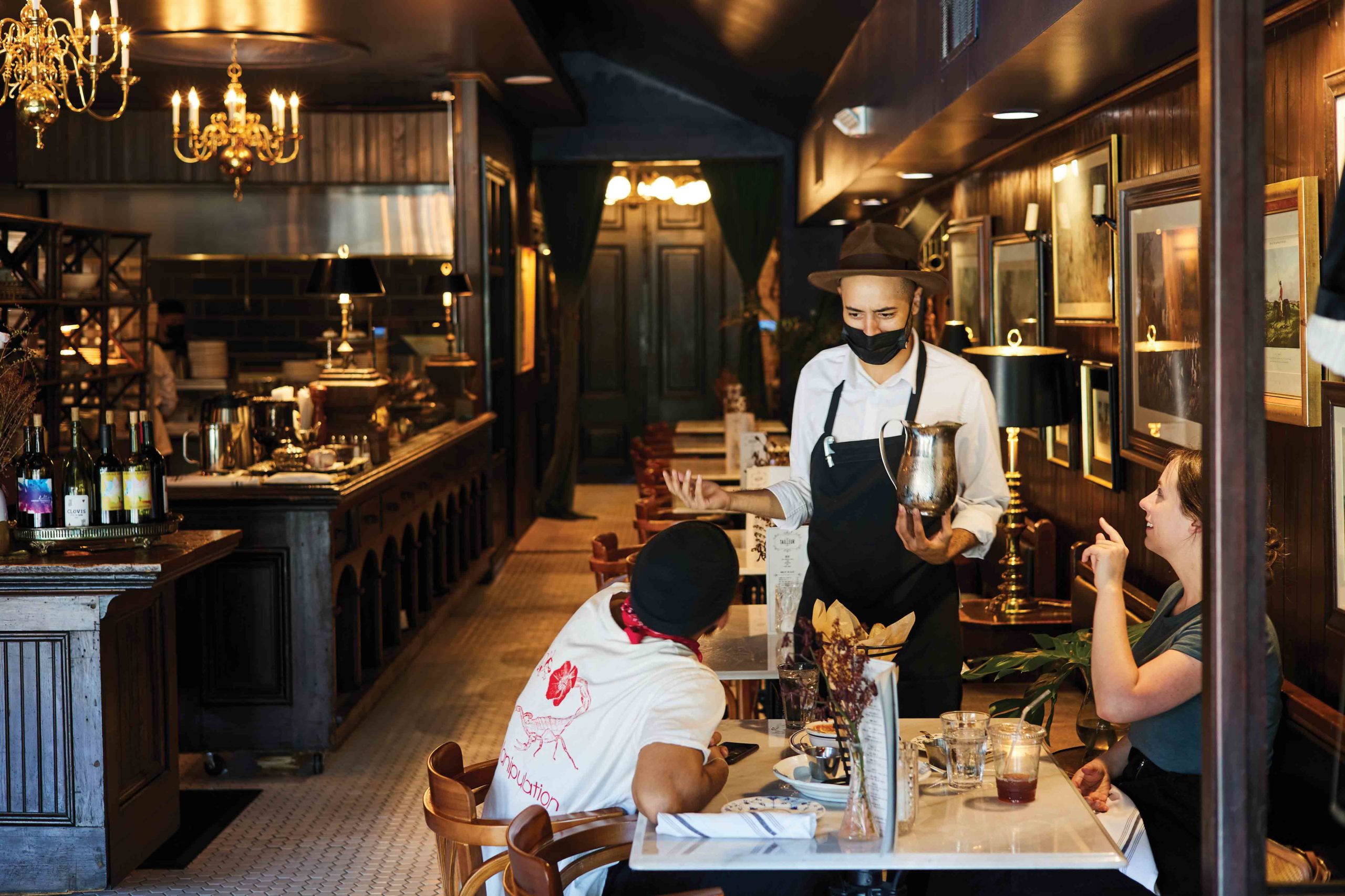
For many old-style European cafes, the food is nothing revolutionary. The magic is in the indubitable comfort of these spaces: Sitting in one of the well-worn seats, feeling the weight of tarnished antique silver in your hand, leaning across the aisle to knock your glass of wine in a merry salute with your neighbor’s. This is the vibe Tailleur (pronounced: Taylor), the new Midtown sister restaurant from the team behind The Russell, is going for.
Owners Heather White and Amante Domingo planned this restaurant during the pandemic, over eighteen long months. It opened in mid-August and has been popular since—maybe you’re not yet ready to book a trip to Europe, and Tailleur gets you close.
White and Domingo painstakingly remodeled a 1928 building, painting the walls a rich naval blue, laying hexagon tile and hanging warm brass chandeliers from the domed ceiling. The details are precise and intimate down to the black sequined equestrian show jacket hanging from a coat hook and the riding boots propped on the stairs, as though Ralph Lauren himself has just arrived home.
Some have called Tailleur a French bistro, taking cues from the name—the French spelling of Taylor—and a menu that centers on classics like steak frites, mussels and steak tartare. The owners see it as more broadly continental and say the menu will change seasonally.
What has made it such an immediate success is the fact that the classics are done well here. Domingo’s food is rustic—and occasionally old-fashioned, but in a way that soothes, like an endearing relative who still decorates with doilies.
The rack of lamb is rubbed in a bounty of garlic and thyme, roasted to a perfect medium-rare and finished with a cheerful demi-glace that accentuates the robust, earthy protein. An enormous pork shank is braised slowly in bold red wines that you would be proud to serve at a dinner party, and you hardly need a fork to separate it from the bone; one stern look will do. The mussels marinières are an indulgence. There is nothing secret about the sauce—it is the standard white wine, butter and garlic, plus a spice rack of dried herbs—but it is a good example of the honest, time-tested cooking that Tailleur leans on. —Natalie Torres Gallagher
Pro tip: Save room for the dessert. Get the carrot cake featuring twenty-four ingredients, none of them raisins.
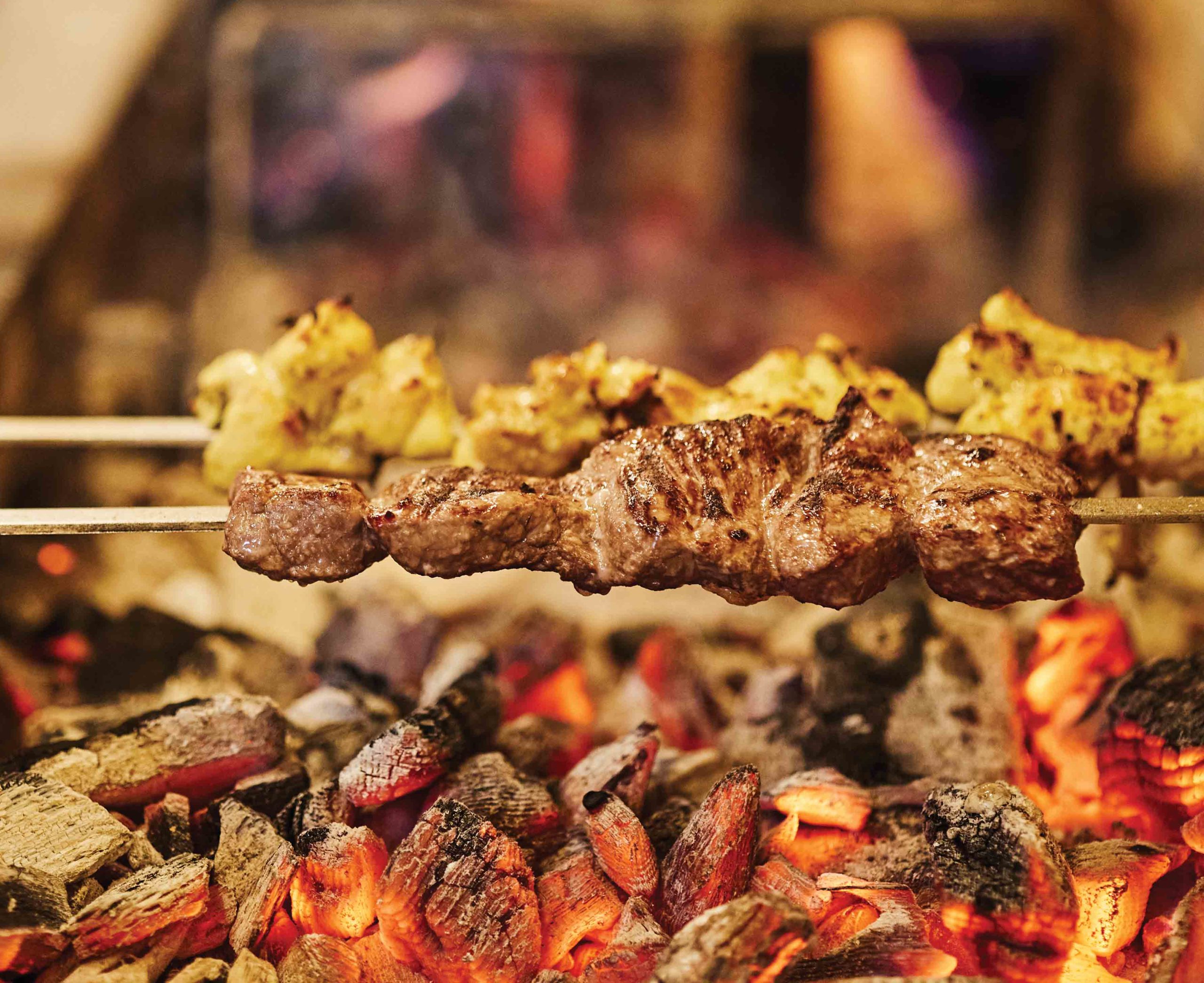
Clay and Fire needed a chef. Brent Gunnels coveted a Westside building. And in the crazy days of the pandemic, it all came together at this most unexpected of Near
Eastern restaurants.
The backstory: Developer Adam Jones specializes in rehabbing historic buildings and has owned a little house on top of the hill in the Westside neighborhood for two decades. Before the coronavirus hit, he’d tapped Turkish restaurateur Orcan Yigit.
Gunnels is a talented chef who, before the pandemic, was running a backyard pizza pop-up called Cult of Pi from his house just down the street from Clay & Fire. “I’ve approached him so many times about this space because I just love this space,” Gunnels says. “It’s one of my favorite restaurant spaces in this city.”
And so, when things got hairy—and with the help of Skype tutorials on Turkish dishes—Gunnels found himself manning the restaurant’s clay oven.
Clay and Fire opened in August 2020, and while the menu is part collaboration with Jones, it’s also deeply personal for Gunnels.
Start with the mezze. If you are with a group, get “the whole shebang”—an order that will overwhelm your table with a barrage of small snack plates and homemade flatbread. We love the garlicky baba ganoush—Gunnels roasts the eggplants on coals until they turn black—and the peppery pop of the guajillo hummus. Snow-white Bulgarian yogurt could be mistaken for luxury face cream (only in texture, not in taste—it’s all tang). And if you spot butter-poached radishes on the menu, order doubles: Gunnels slowly ladles hot butter over skinned radishes until they are just cooked through, sublimely textured and as precious as the pearls they resemble.
For the kebab, Jones’ Iranian-born wife, Noori, gave Gunnels a hands-on tutorial on the legacy of the dish. Gunnels rolls minced lamb and beef into happy meatballs seasoned with tomato, cumin, mint and—if you opt for the spicy version—a blend of half a dozen chili peppers that may be from Gunnels’ own garden. —Natalie Torres Gallagher
Pro tip: Sunday brunch is a chance to try Middle Eastern breakfast items you won’t see elsewhere in town, like the Turkish egg dish menemen.
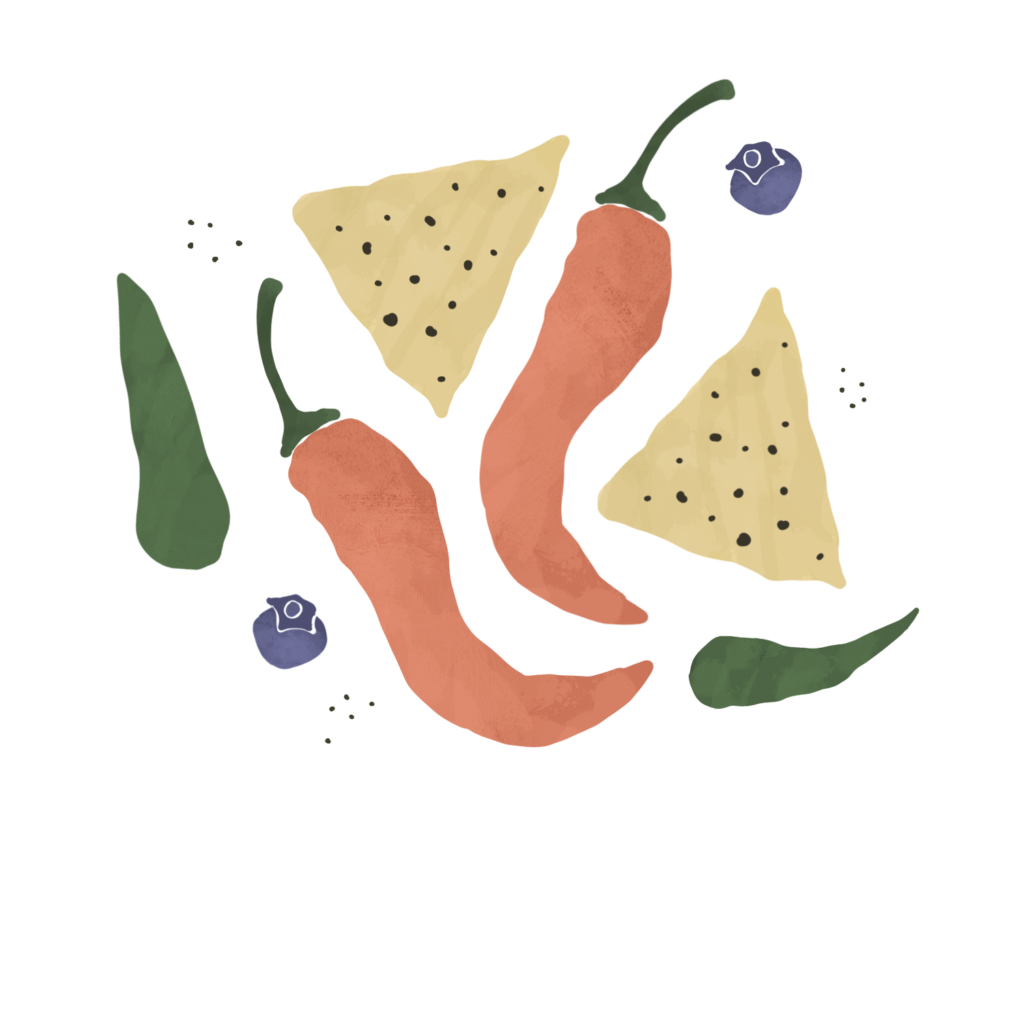
Maybe it’s the pandemic, maybe it’s nesting millennials finding their way around the kitchen, or maybe it’s just a function of entrepreneurs looking to maximize on each customer.
Whatever it is, it’s clear this era has birthed The Year of the “And Market,” as some of our favorite restaurants also sell ingredients, sauces and the like to-go.
Out of our top nine new restaurants, Taco Naco and Baba’s Pantry both stand out for their well-appointed cold cases, both of which could conceivably outfit you with groceries for a few days. Clay and Fire has an extensive “bodega” menu of to-go sauces, spices and speciality produce from black salt to Turkish peppers. And they’re not alone. In Midtown, Billie’s Grocery has won a devoted following with gluten-free baked goods and some of the tastiest lemon curd you’ll ever eat.
In KCK, Caribe Blue—temporarily closed as of our deadline—makes a mean mofongo roll and shredded skirt steak but has a small selection of provisions behind the register. It’s a trend you’ll even find in Grandview, where a new barbecue spot called Lueck’s is also a “General Store” with house-made canned goods, jerky, smoked cheese and baked goods.
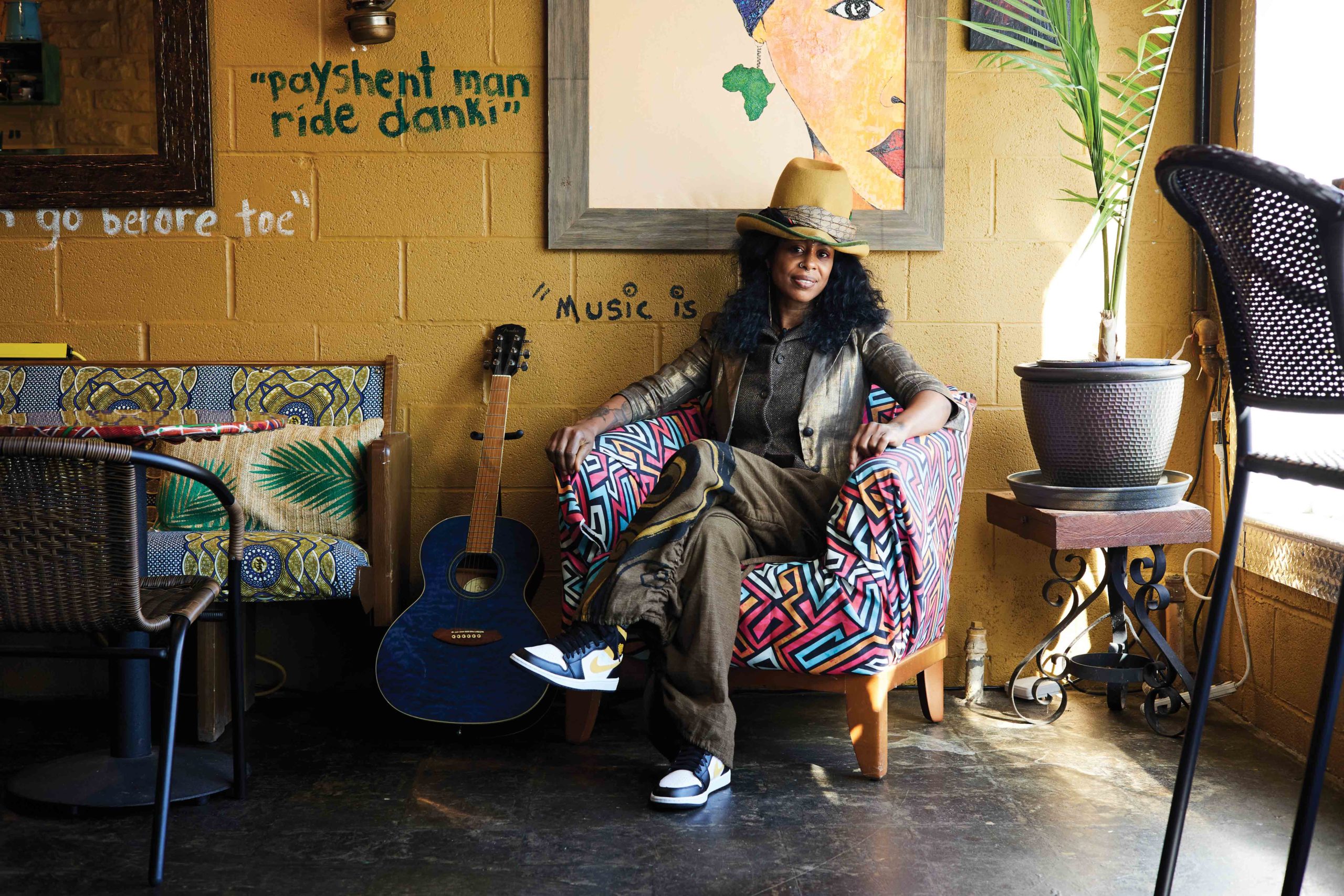
It wasn’t until Tanyech Yarbrough traveled the world with her family—Paris, Ethiopia, Tanzania and Zanzibar—that she realized she wanted to quit her job as district manager for Marshalls and open a restaurant. “Traveling made me look at my life differently, like, ‘I’ve got this stressful job, and I no longer enjoy it’,” Yarbrough says. “I missed a lot of years with my family and my kids.”
When Yarbrough returned from her travels, her partner—who is Nigerian—took her to Fannie’s West African Cuisine in Hyde Park. Yarbrough was introduced to the owner, Fannie, who convinced her to rent a storefront for her own restaurant. So Yarbrough found a spot on Troost and renovated it top to bottom, making it a bright, clean and cozy space.
Having moved from Jamaica to the Crown Heights neighborhood of Brooklyn in 1983 when she was eight years old, Yarbrough grew up on Jamaican food, so that part of her menu came naturally. Wah Gwan, which means ‘What’s up?’ in Jamaican Patois, serves Jamaican comfort foods like jerk chicken and curry goat.
Yarbrough’s jerk chicken is ultra-tender and cooked with a perfect balance of tang and spice. The curry goat is peppery and creamy, and at Wah Gwan, it’s made with coconut oil. “I believe in using healthier oils, and I don’t steam down my cabbage either because you lose a lot of nutrients that way,” Yarbrough says.
It wasn’t just Jamaican food Yarbrough had her eyes on, however. She wanted to put Nigerian and Caribbean-West African fusion dishes on the menu, too. On the Nigerian side of the menu, you’ll find chicken stew, jollof rice, egusi and fufu.
The chicken stew is made with a thick tomato- based sauce, garlic and peppers, then poured over jollof rice. Egusi is similar to gumbo and made with melon seeds, African spices and goat or chicken. It’s served with fufu, a dough-like ball made from cassava, which serves as the perfect vehicle for Yarbrough’s rich egusi.
Yarbrough doesn’t call herself a chef, and she doesn’t really feel like the term “cook” fits, either. “I like to look at it as I’m somebody’s Auntie or grandma because I want you to feel like you just had their cooking,” she says. “When I’m here, when I’m creating these dishes, it’s about the love.” —Mary Henn
Pro tip: The curry goat is a laborious dish that is always available on Fridays, but you can’t count on seeing it other times.
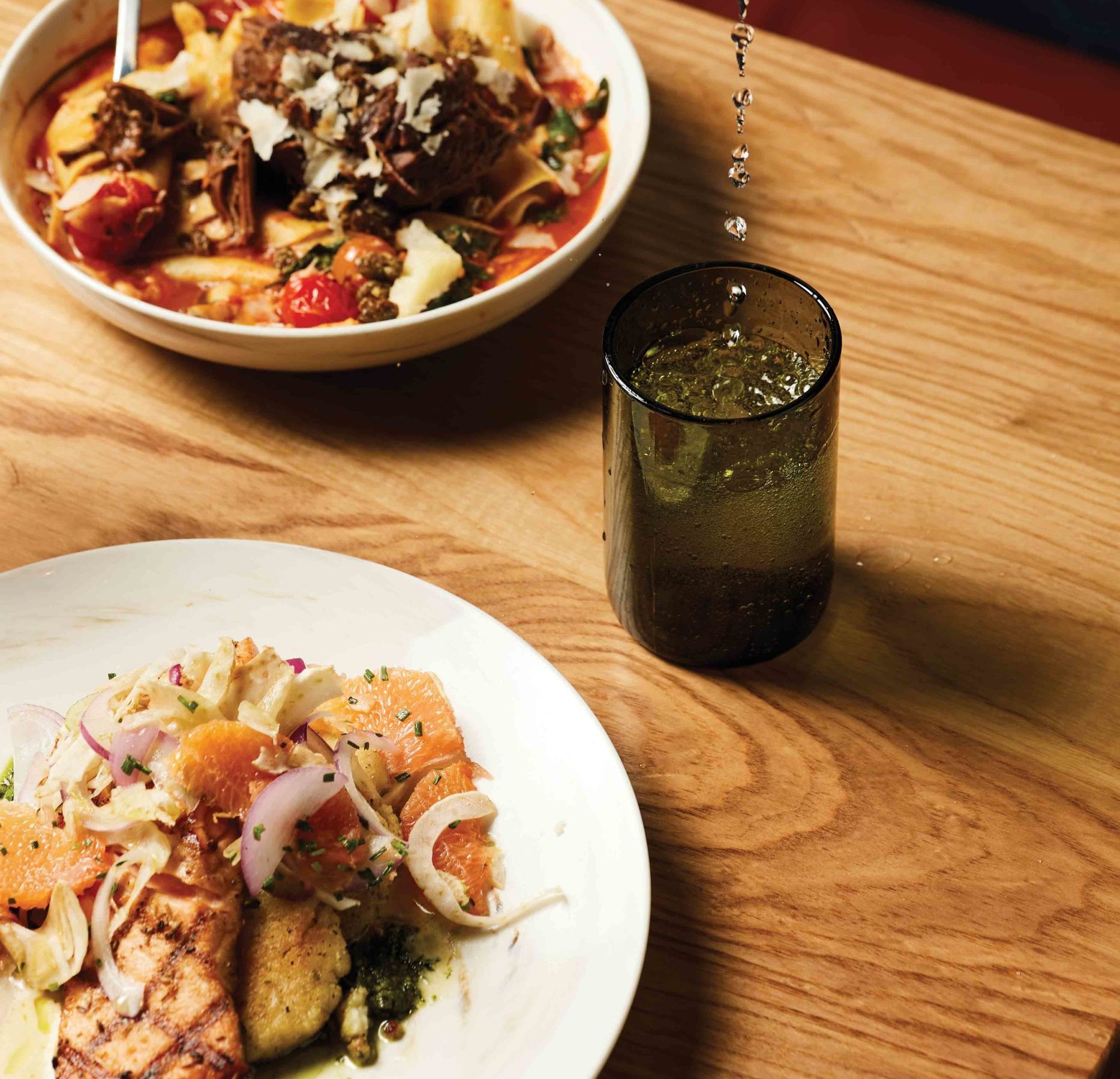
No place surprised me this year as much as Va Bene did.
The Italian eatery quietly opened one year ago in the Corinth Square shopping center in Prairie Village, sliding into a space vacated by Urban Table, next to the Salty Iguana. At a glance, the decor (a dining room with a subway-tiled wall and red dining chairs, a small bar with crowded seating) and menu (all the usual pasta and pizza suspects) did not seem all that remarkable. But it’s been drawing packed crowds most nights, and I quickly came to understand why.
Va Bene is owned by local restaurateur Whitney VinZant, who owns two other spots in the shopping center, Taco Republic and BRGR. Chef Nathan Deters came from Overland Park’s North Italia to open Va Bene, and when he left Va Bene in August, sous chef James Landis took his place at the helm of the kitchen.
Landis was most recently at Ragazza and Blue Grotto. Since taking over Bene’s menu, he’s made a few tweaks. He took the house-made pappardelle and paired it with a traditional Piedmontese braised beef. Arancini larger than golf balls are stuffed with fresh mozzarella and garnished with pickled mushrooms, an echo of the porcini broth used to cook the risotto. The Sicilian pork ragu—delicate pork braised in red wine, chiles and sofrito and served over parmesan polenta—is his, too.
But it was the salmon, rubbed with toasted fennel and coriander and served with a welcoming goat cheese-polenta cake and a walnut pesto, that gave me a moment of wonder.
“I wouldn’t be here if I just wanted to serve a spaghetti meatball plate and say, ‘This is what we do and if you don’t like it, go somewhere else,’” he says. “I want someone to come in here and be blown away because we serve really good food at a really good price.” —Natalie Torres Gallagher
Pro tip: Wednesday night features half-priced wine bottles. Get there early to grab a table.
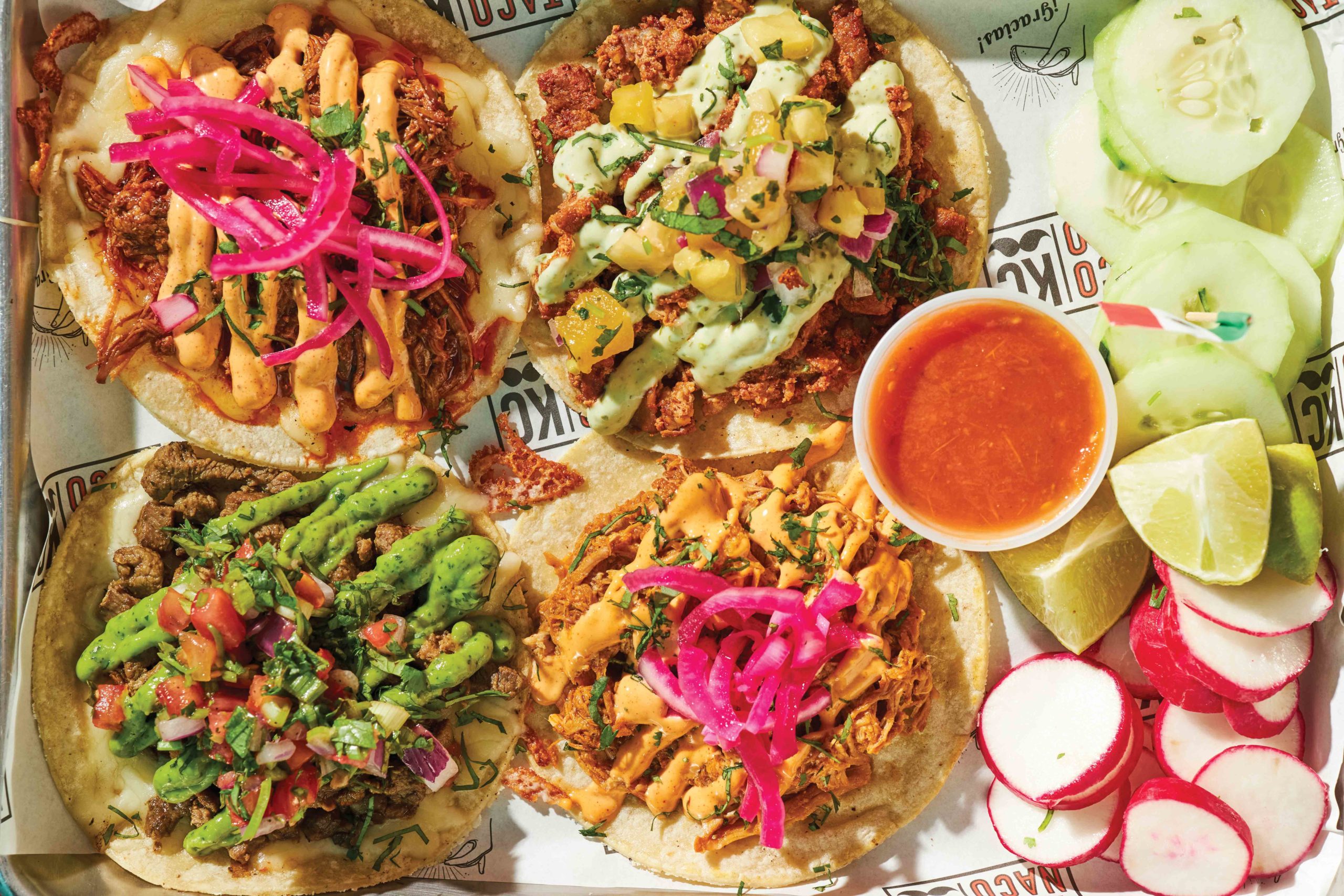
I never trust a label avowing something as “spicy.” I have too often been disappointed by wimpy grocery store salsas and fancy hot sauces emblazoned with danger warnings. As I considered the salsa options in Taco Naco’s cold case, I plucked out three that sounded flavorful: creamy jalapeno, peanut macha and roasted fuego. Later, when I set these offerings out on the grazing table at a gathering, I would regret the lack of a disclaimer. Chef Fernanda Reyes’ fuego salsa—made with roasted habaneros, garlic and tomatoes—was, indeed, on the fiery side. My friends were taken by surprise.
Most of what you find at Taco Naco takes you by surprise. The casual counter-service taqueria and market in Overland Park is colorful and festive. Beyond the grab-and-go case stocked with salsas and margarita mixes, there are house-roasted spices, Mexican candies and fresh fruit paletas. But most people come for the tacos: Reyes’ slow-cooked cochinita pibil (aromatic shredded pork), barbacoa that melts in your mouth, the vegan potato with mole pipian. (A lot of folks come for the fortifying breakfast burritos, too.)
Since it started just before the pandemic in 2020, under a tent at the nearby Overland Park Farmers Market, Taco Naco has always done Mexican food just a little bit differently. Reyes’ tacos, served in artisanal Yoli Tortilleria tortillas, are not street tacos. Then again, though Reyes is from Durango, she has never considered her food to be “authentic Mexican.” She gets granular on this: Guajillo peppers here, she says, aren’t quite red enough, or the texture is off, so she’s not going to build a dish around them.
“Sometimes you want to follow the tradition but you don’t find the right ingredients because we’re not in Mexico,” Reyes says. “So I give it a twist. I don’t change things, because I like to respect the traditions, but I move things around. We’re adapting to what Kansas City offers us. If I’m making tamales, I go to the market and I see different ingredients and I get ideas. What happens if I add zucchini or squash blossom? As a chef, it’s about two things: what your customer wants and the ingredients you have at that moment.” —Natalie Torres Gallagher
Pro tip: The passion fruit margarita mix is the only thing missing from your party. Use it as a mixer with tequila or your favorite spirit.
